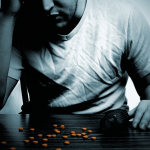Heroin is a highly addictive drug that can quickly take hold of your life. If you suspect that a loved one is using heroin, knowing the signs and treatments for heroin abuse and addiction will help you offer support and encourage them to get help.
It can be pretty challenging if you are in a relationship with someone who abuses heroin. This drug can take over their life, meaning they might neglect responsibilities such as work or school or even risk their relationships with friends and family.
However, if you love someone who uses heroin, there are ways to support them while encouraging them to seek professional help. Understanding the signs of heroin abuse and addiction will allow you to recognize the dangers of this drug sooner rather than later.
Read on to learn more about how you can spot a loved one using heroin to provide support, assistance, love, and encouragement when they need it most.
Understanding Heroin Abuse And Addiction
When someone abuses heroin, they are using the drug in ways that are not intended, which can lead to dependence and addiction.
The National Institute on Drug Abuse (NIDA) reports that roughly one in three people who use heroin will become addicted. However, the risk of addiction can be even higher for people who use heroin regularly.
If you suspect that a loved one is abusing heroin, keep an eye out for these signs:
Physical Signs Of Heroin Abuse
If a loved one is showing signs of heroin abuse and addiction, you may notice them with track marks on their arms or legs resulting from regular drug injections. You also might see a drop in their energy level and a lack of interest in everyday activities.
These signs can indicate that your loved one is struggling with heroin abuse. Other physical symptoms of heroin use may include shallow breathing, cough suppression, vomiting, and diarrhea.
They are also likely to show signs of neglecting their health and well-being. You might notice signs of poor hygiene, especially if they fail to take care of their teeth or nails.
Psychological Signs Of Heroin Abuse
If your loved one abuses heroin, you may notice a change in their mood or mental state. They may become apathetic and lack the motivation to pursue their interests. You may see them sleeping for long periods during the day or experiencing a loss of appetite and weight.
Other psychological signs of heroin abuse include anxiety, paranoia, and hallucinations.
Treatments And Rehabilitation Programs For Heroin Addiction
If you suspect a loved one is struggling with heroin abuse, you should encourage them to seek treatment at a rehabilitation facility as soon as possible.
There are several types of treatments for heroin addiction, including medications, behavioral therapy, and holistic therapies.
While some people respond better to specific treatments, it is important to remember that many options are available. You and your loved one should discuss your treatment options and choose the one that best suits your needs.
Overcoming heroin addiction is a long journey, but it’s one worth taking.
The Bottom Line
You should not wait to intervene if you suspect your loved one is struggling with heroin abuse. Heroin is a dangerous and highly addictive drug, and getting help as soon as possible is the best way to overcome an addiction.
Knowing how to best support a loved one using heroin can be challenging. But by knowing the signs of heroin abuse, you can better understand the dangers of this drug and help your loved one overcome their addiction as soon as possible.








Pingback: Addiction In The Elderly Population